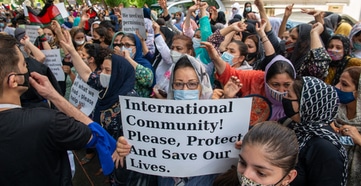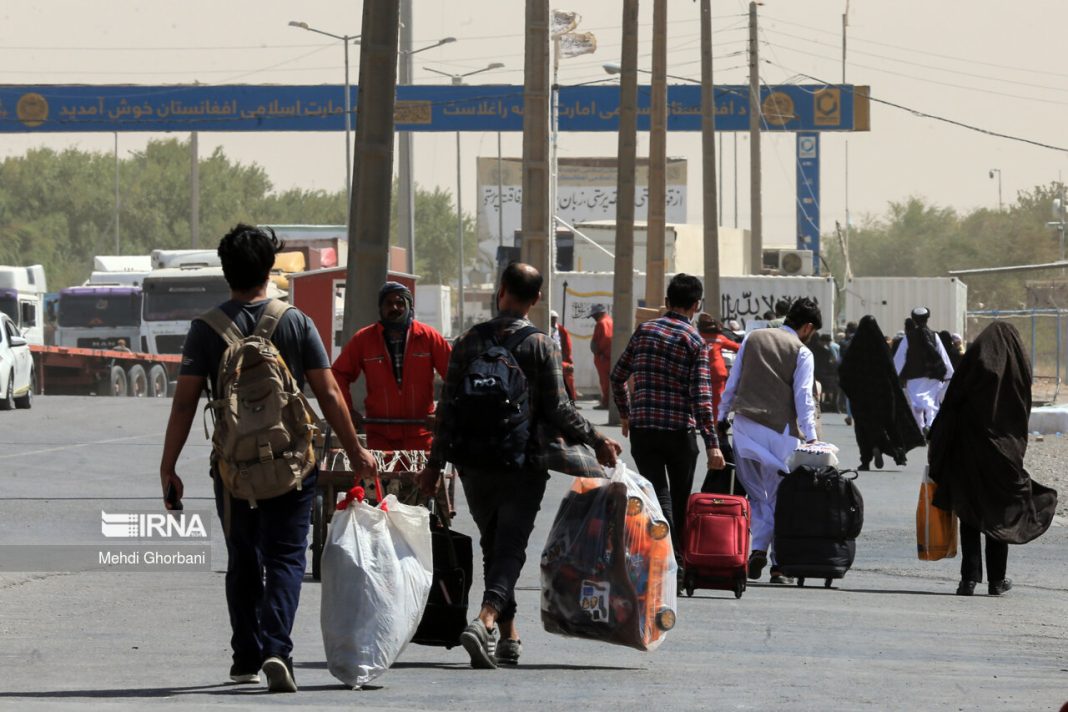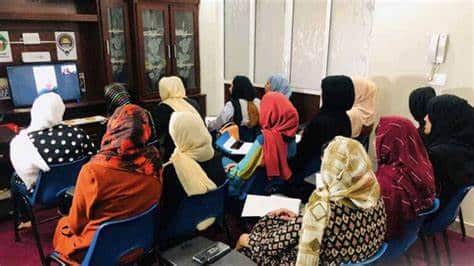
Campaign calls for gender apartheid to be crime under international law
راه اندازی کمپاین به منظور جرم محسوب شدن آپارتاید جنسیتی طبق قوانین بین المللی
یک گروه برجسته از زنان افغان و ایرانی از کمپینی حمایت می کنند که خواستار به رسمیت شناختن آپارتاید جنسیتی به عنوان یک جنایت بر اساس قوانین بین المللی هستند.
این کمپین که در روز جهانی زن راه اندازی شد، منعکس کننده این باور است که قوانین فعلی تبعیض علیه زنان ماهیت سیستماتیک سیاست های تحمیل شده در افغانستان و ایران برای تنزل جایگاه زنان در جامعه را نشان نمی دهد.
امضاکنندگان این نامه سرگشاده عبارتند از شیرین عبادی، برنده ایرانی جایزه صلح نوبل. فوزیه کوفی، معاون اول زن پارلمان افغانستان؛ بنفشا یعقوبی، کمیسر کمیسیون مستقل حقوق بشر افغانستان؛ و همچنین بسیاری از فعالانی که هنوز برای حقوق خود در افغانستان و ایران مبارزه می کنند.
در حالی که در حقوق بینالملل جرم آپارتاید وجود دارد، اما فقط در مورد گروههای نژادی اعمال میشود نه جنسیت.
نویسندگان نامه سرگشاده، از جمله وکلای بینالمللی، استدلال میکنند که تعریف حقوقی آپارتاید بهعنوان جنایت علیه بشریت، که توسط سازمان ملل در سال 1973 به تصویب رسید و توسط اساسنامه رم در سال 1998 حمایت شد، آنطور که در حال حاضر تفسیر میشود، مناسب با افغانستان و ایران نیست، حتی اگر اصطلاح توصیفی اینطور باشد.
گیسو نیا، یکی از وکلای حقوق بشر که از این کمپین حمایت می کند، گفت: «درک این موضوع که آپارتاید جنسیتی در حال حاضر تنها به عنوان یک اصطلاح توصیفی قدرت دارد، بسیار مهم است. طبق قوانین بینالمللی، جرم آپارتاید فقط در مورد سلسله مراتب نژادی اعمال میشود، نه سلسله مراتب بر اساس جنسیت. این کمپین به دنبال گسترش مجموعه ابزارهای اخلاقی، سیاسی و قانونی در دسترس برای بسیج اقدامات بینالمللی علیه و در نهایت پایان دادن به سیستمهای آپارتاید جنسیتی است.»
این نامه استدلال میکند که تحت حکومت طالبان، زنان در افغانستان از تحصیل، اشتغال در سازمانهای غیردولتی و دولتی، و سفر در مسافتهای طولانی بدون سرپرست مرد منع شدهاند، این در حالی است که باید از قوانین پوشش شدید پیروی کنند.
در جمهوری اسلامی ایران زنان از بسیاری از رشتههای تحصیلی، مسابقات ورزشی، مسافرت بدون سرپرست مرد منع شدهاند، بر اساس قانون نصف مرد ارزش دارند و مجبور به رعایت حجاب اجباری هستند. این ممنوعیتها و نظامهای حقوقی گستردهتری که به آن تعلق دارند، به دنبال ایجاد و حفظ انقیاد زنان در برابر مردان و دولت هستند. نقض این قوانین می تواند منجر به خشونت، زندان و مرگ شود.»
نویسندگان نامه می گویند که آنها علیه هنجارهای جوامع مسلمان تبعیض آمیز نیستند، یا به دنبال تحمیل ارزش های فرهنگی غربی نیستند، بلکه در عوض به تلاش های سیستماتیک برای تحت سلطه در آوردن زنانی می پردازند که در هیچ جامعه ای، صرف نظر از مذهب، جایگاهی ندارند.
A prominent group of Afghan and Iranian women are backing a campaign calling for gender apartheid to be recognized as a crime under international law.
The campaign, launched on International Women’s Day, reflects a belief that the current laws covering discrimination against women do not capture the systematic nature of the policies imposed in Afghanistan and Iran to downgrade the status of women in society.
Signatories of the open letter include the Iranian Nobel peace prize laureate Shirin Ebadi; the first female deputy speaker of the Afghan parliament, Fawzia Koofi; a commissioner of the Afghan Independent Human Rights Commission, Benafsha Yaqoobi; as well as many activists still fighting for their rights in Afghanistan and Iran.
While there is a crime of apartheid in international law, it applies only to racial groups, not to gender.
The word apartheid comes from the Afrikaans word for “apart” and was first used to describe the treatment of black people in South Africa under white minority rule from 1948 to the early 1990s.
The authors of the open letter, including international lawyers, argue that the legal definition of apartheid as a crime against humanity, adopted by the UN in 1973 and supported by the 1998 Rome Statute, does not as currently interpreted fit the case of Afghanistan and Iran, even if the descriptive term does.
“It is paramount to understand that gender apartheid currently only has power as a descriptive term,” said Gissou Nia, one of the human rights lawyers backing the campaign. “Under international law, the crime of apartheid only applies to racial hierarchies, not hierarchies based on gender. This campaign will seek to expand the set of moral, political and legal tools available to mobilise international action against and ultimately end systems of gender apartheid.”
The letter argues that under the Taliban, women in Afghanistan are banned from education, employment in NGOs and in government, and from travelling long distances without a male guardian, all while having to abide by a severe dress code.
It says: “In the Islamic Republic of Iran, women are banned from many fields of study, sporting events, from traveling without a male guardian, are worth half a man under the law and are forced to wear compulsory hijab. These bans, and the broader legal systems they belong to, seek to establish and maintain women’s subjugation to men and the state. Violation of these laws can lead to violence, imprisonment and death.”
The authors of the letter say they are not being discriminatory against the norms of Muslim societies, or seeking to impose western cultural values, but are instead addressing systematic attempts to subjugate women that have no place in any society, regardless of religion.
Main Resource Link
- Tags
- Asia



